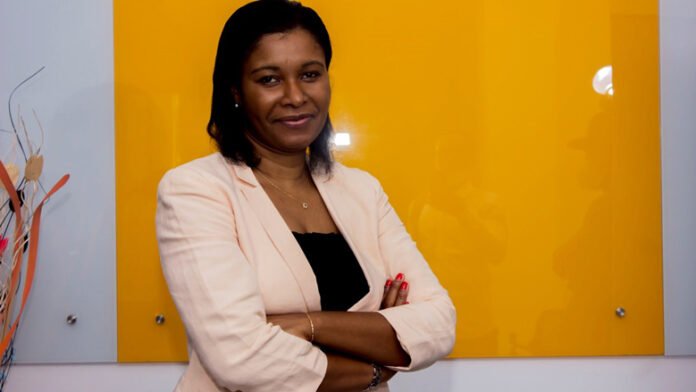Financial Inclusion in Côte d’Ivoire: Challenges and Opportunities
The Challenge of Financial Exclusion
In Côte d’Ivoire, financial exclusion remains a significant barrier for many individuals and small businesses. Access to finance is particularly challenging for women, who often face additional hurdles in securing financial services. Despite the advent of mobile money, which has made strides in bridging the gender gap, the 2017 Global Findex database revealed that only 41% of the Ivorian population had access to financial services. This statistic underscores the urgent need for more inclusive financial systems.
The landscape is further complicated by the presence of 37 Fintech initiatives that, while promising, struggle with a lack of funding, limited business and digital skills, and an unclear regulatory environment. Three primary challenges hinder Côte d’Ivoire from fully harnessing the potential of a digital economy: limited digital inclusion in rural areas, poor policy and regulation, and gaps in financing for private sector development.
A Comprehensive Approach to Improvement
To address these challenges, a thorough study was conducted through desk research, questionnaires, and interviews. The aim was to assess the constraints faced by Fintech development and to propose actionable solutions for enhancing digital financial inclusion, particularly for poor households and micro-entrepreneurs, including women.
The study focused on several critical areas: the legal and policy framework, financial and telecommunications infrastructure, and the overall business environment for Fintech startups. This analytical work culminated in a multi-stakeholder workshop held on October 21-22, 2021, which aimed to create a more enabling environment for Fintechs and boost financial inclusion. The workshop resulted in a Roadmap for 2022-2024, outlining strategies to improve the Fintech sector in Côte d’Ivoire.
Key Findings and Results
The study revealed significant potential for a new generation of financial service providers in Côte d’Ivoire. It also identified the capacity-building needs of existing Fintech companies. Over time, these efforts are expected to foster a more supportive environment that promotes private sector-led growth and the development of human capital.
One of the most striking findings was the pronounced gender gap within the Fintech sector, with women leading only 2 out of the 37 Fintech companies operating in the country. Additionally, most of these companies are concentrated in urban areas, leaving rural populations underserved. The findings prompted several recommendations aimed at reducing both gender and urban-rural disparities in access to digital financial services.
The action plan includes commitments to increase women’s interest in technology-based financial products, integrate financial education into literacy curricula for women, sensitize rural populations about Fintech services, and support the establishment of incubators in each district.
The Role of the Bank Group
The study was conducted under the Côte d’Ivoire Jobs and Economic Transformation Project, approved in June 2021. The Bank team collaborated with the Agence Française de Développement (AFD) to leverage funding for the Agency for Financial Inclusion (APIF). AFD also provided a crucial technical review of the study, ensuring its recommendations were robust and actionable.
Looking Ahead: The 2022-2024 Roadmap
The Government of Côte d’Ivoire is set to implement the 2022-2024 Roadmap to Improve Fintech, incorporating major recommendations from the World Bank study. This includes actions to enhance alternative finance, promote women-led Fintechs, and design gender-focused financial products. The Roadmap aims to contribute to ongoing efforts to revise the enabling environment for Fintech within the West African Economic and Monetary Union (WAEMU).
The Central Bank of West African States (BCEAO) is leading these efforts, which include the establishment of a national innovation lab. Additionally, the Roadmap outlines measures to build the capacity of Fintech business owners and strengthen support organizations, such as incubators.
A Broader Impact
The findings from this study have resonated beyond Côte d’Ivoire. The Bank team shared the report with regulators in Madagascar and Nigeria, both of which found the insights valuable and have requested similar studies using the same methodology. The Central Bank of Madagascar is set to host its first Fintech workshop on June 17, 2022, thanks to the collaborative support of the World Bank and the International Finance Corporation (IFC).
Voices from the Field
Nadine Ebelle Kotto, the Chief Executive Officer of MQash, a Fintech specializing in innovative payment solutions, shared her experience: “As a female entrepreneur, I was pleased to have the opportunity to be part of the Regulatory Committee established by the Côte d’Ivoire Agency for Financial Inclusion (APIF) under this World Bank-supported initiative. The APIF is the first public institution to allow Fintechs in Côte d’Ivoire to have a voice. This initiative gathered key players of the financial services ecosystem, which jointly worked on a roadmap for Fintech development to accelerate innovation and financial access.”
Through these collective efforts, Côte d’Ivoire is poised to make significant strides toward achieving its financial inclusion objectives, fostering a more inclusive and dynamic economy for all its citizens.

